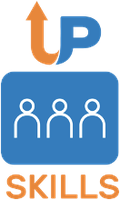
Unibo structure involved: Department of Interpreting and Translation - DIT
Scientific manager: Silvia Bernardini
Unibo Team: Gaia Aragrande, Alberto Barrón-Cedeño, Adriano Ferraresi, Maja Milicevic Petrovic
Project Web page: https://upskillsproject.eu
Erasmus+ Action type: Cooperation for innovation and the exchange of good practices Strategic Partnerships for higher education
Project reference: 2020-1-MT01-KA203-074246
Start Date: 1 September 2020
End Date: 31 August 2023
Budget: Total: € 449,910 UNIBO: € 89,101
Coordinator
UNIVERSITA TA MALTA (MT)
Partners
UNIVERZITET U BEOGRADU (RS)
CLARIN ERIC (NL)
UNIVERSITAET GRAZ (AT)
ALMA MATER STUDIORUM - UNIVERSITÀ DI BOLOGNA (IT)
SVEUCILISTE U RIJECI (HR)
Summary
Over time, the study of language has taken many different forms, ranging from interpretation of literary texts to scientific experimentation and translation studies, but employment prospects for graduates in language-related disciplines (linguistics, foreign languages, language pedagogy, translation and interpreting) are still rather limited and mostly focused on teaching positions or positions as translators. This stands in stark contrast with their potential employability given the omnipresence of language and communication in society and the number of companies that make language their main business. Technology giants such as Google, Amazon, and Facebook all work with language data and the demand for research skills in language-related domains is constantly growing. University curricula, however, are rarely oriented towards skills needed for research and industry, focusing on describing rather than on predicting or explaining linguistic phenomena. As a result, students tend to be poorly prepared for research or industry careers.
The central goal of our project is to identify and tackle these skills gaps and mismatches through the development of a new curriculum component and supporting materials to be embedded in existing programmes. The proposed strategic partnership will introduce an integrated research-oriented perspective into language-related programmes, with a focus on the BA level. This will enhance students’ employability by providing them with the critical skills needed to compete for a wider range of positions in the labour market. Our preliminary needs analysis shows that more forward-looking skills, such as problem solving, research design and project management are currently missing in language-related curricula, but are highly desirable in the relevant working environments. While several projects have focused on providing students with digital skills, there remain gaps which we have and will further identify. We will work together with companies to include real-world applications in the studies. We will integrate existing research into teaching by promoting inquiry-based learning, and by training the trainers in how to implement it. We will make use of innovative pedagogies such as online educational games. We will promote internationalisation between higher education institutions by offering a unified curriculum component across several countries and by spreading ideas through multiplier events aimed at participants from 20+ countries, and embedded intensive programmes with around 50 students and staff from the partner countries.
Targeted participants in our activities are students (primarily those reading for a BA) in language-related disciplines at all full partners and associate partners (13,000), lecturers from the partner institutions (300) and beyond (120+), as well as industry staff members (15+). We plan to produce four intellectual outputs as a means of filling the identified gap. First, we will deliver a detailed needs analysis, a follow-up of the preliminary needs analysis carried out during the preparation stage. The second intellectual output, best practices for research-based teaching, will address the goal of integrating research into teaching from three different perspectives, academic and industry-based research, as well as the integration of research infrastructures. The third output, contents and materials, will aggregate existing resources (e.g. online courses, tutorials) and complement them where needed with new items (e.g. problem-solving case studies). The fourth intellectual output will be a set of educational games, whose contents and materials will be made available to all interested students and lecturers, as well as detailed manuals and guidelines. The delivery of each intellectual output will be followed by a multiplier event, where we showcase the project results and organise hands-on training for colleagues from language-related disciplines, and, where relevant, beyond. These events will be co-located twice with major conferences in our field to reach better visibility. Besides multiplier events, we will organise two train-the-trainers events, one concerning educational games and one concerning content creation. Finally, we will organise a summer school at the end of the project, where best performing students will work on highly challenging individual projects under the supervision of experienced researchers and professionals.
We expect that the project will result in a new profile of graduates in language-related disciplines, who will fit well in modern working environments, both in industry and academia. We expect that our intellectual outputs will enable a wide spread of our learning model with an impact far beyond the members of this consortium. Ultimately, this will lead to better job prospects for students in language-related disciplines and beyond, a smoother transition to the world of work, and a better work force for industry and research.
